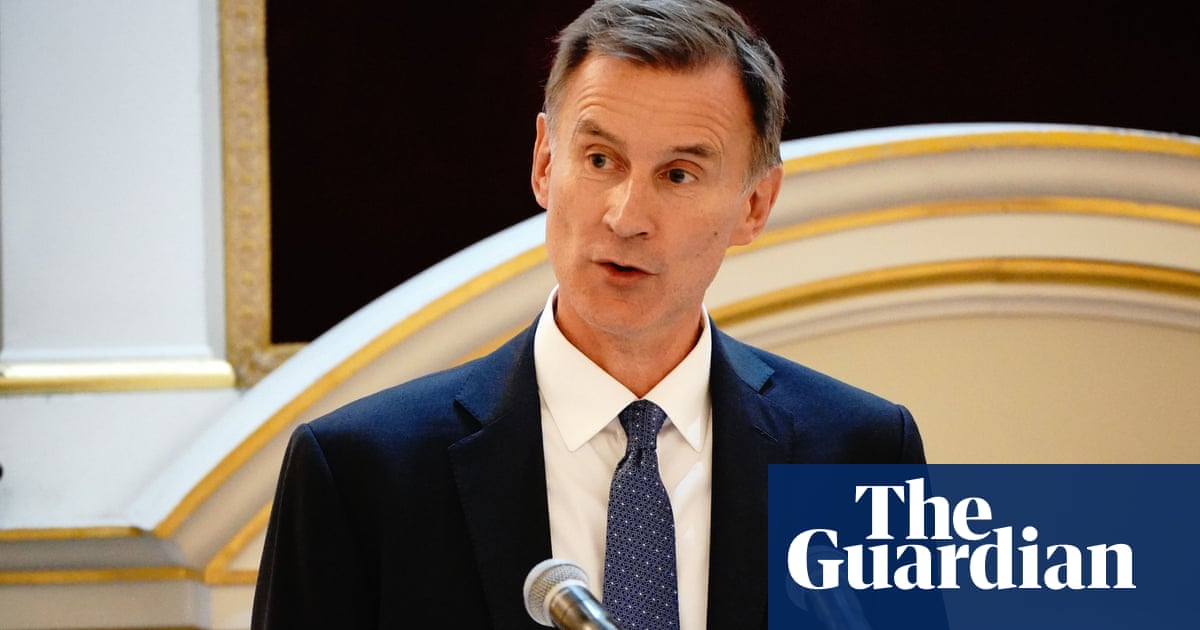
The Treasury is planning to slash billions from the overseas aid budget despite the foreign secretary, Dominic Raab, praising the government’s 0.7% aid target on Monday as representing UK values in front of aides to Joe Biden.
The Treasury wants to cut the aid budget from 0.7% of gross national income to 0.5% next year and plans to make the announcement as part of next Monday’s one-year spending review.
The Foreign Office, which recently merged with the Department for International Development, is already cutting more than £2.9bn from the aid budget this year due to the fall in UK growth in 2020 because of the coronavirus crisis.
The aid budget was £15bn last year, of which 80% is spent by the newly merged department. A reduction to a 0.5% target in 2021 would result in billions more cut, but the precise amount would depend on overall growth.
The communities secretary, Robert Jenrick, told LBC radio that difficult choices needed to be made. He said he would not want the UK’s “great reputation” for foreign aid to be compromised but added: “I think it is a legitimate question for us to ask at this moment in time whether or not it would be wise to spend somewhat less in light of the fact public finances are in a really challenging situation.”
Speaking at the mid-Atlantic regional summit on Monday, Raab was asked why the UK was one of the few countries committed to the 0.7% aid target. He said: “The target is contentious and is debated hotly, but we make the case for our values and the alignment between values and interests. For example, through the vaccine we put a lot of money in … there is a moral interest to make sure that the most vulnerable countries do not get a second wave of this virus.”
He was speaking in front of Chris Coons, the Democratic senator tipped to become US secretary of state, and Cindy McCain, a member of the Biden transition team.
Growth is expected to recover next year so if the 0.7% target is maintained the aid budget could increase. The official growth forecasts are due to be published by the Office for Budget Responsibility next week alongside the Treasury’s one-year spending review. A three-year spending plan was abandoned due to the level of uncertainty about the global economy.
But the chancellor, Rishi Sunak, is looking to entrench the aid budget cuts next year to reduce debts and ease other economic pressures.
Primary legislation would be required to abolish the aid budget target, a measure that would struggle to get through parliament, but it might be simpler, and require less parliamentary approval, to cut the target from 0.7% to 0.5%, especially if it is presented as a temporary cut.
Asked whether the government was still committed to the aid target, Boris Johnson’s spokesman declined to say if this was the case. “What we are doing is looking at how the aid is spent to ensure that it serves the UK’s priorities and represents value for money,” he said.
The spokesman cited comments from Jenrick earlier on Tuesday that it was “legitimate” to examine possible savings on aid amid intense financial pressures, and said the International Development Act outlined ways the 0.7% target could be paused if the relevant secretary of state explained why it was necessary.
Critics of the DfID merger would see the abolition of the aid target so soon after the tie-up as confirmation that Foreign Office diplomats are not committed to overseas aid and misunderstood its significance as a symbol of Britain’s global commitments.
Many UK development agencies already resent the lack of consultation over the merger and subsequent Foreign Office attempts to claim that they attended meetings at which they were consulted.
A battle is under way in parliament to maintain a separate committee to scrutinise the overseas aid budget.
The new Foreign Office permanent secretary, Sir Philip Barton, appearing at the foreign affairs select committee two weeks ago, provided no details on this year’s near £2.9bn cuts to aid, but said the department’s priorities were Covid health requirements, girls’ education, climate change and biodiversity, the “bottom billion” poorest people and defending open societies, human rights and “force-for-good” programming.
He implied the bulk of the cuts were being funded by deferring or shrinking programmes.
Commenting on the reports of a reduction in the aid budget in the Daily Mail and the Times, Sarah Champion, chair of the Commons international development select committee, said: “This would do untold damage to our international reputation at the exact moment we are trying to showcase Global Britain. No wonder they want to abolish parliamentary scrutiny.”
The UK has alternative options to shelving the 0.7% target. The main other option is to reclassify spending on security and defence as aid spending, but there are limits to how far the government can go to reinterpret the definition of aid spending without breaching internationally recognised guidelines set by the Organisation for Economic Co-operation and Development.












